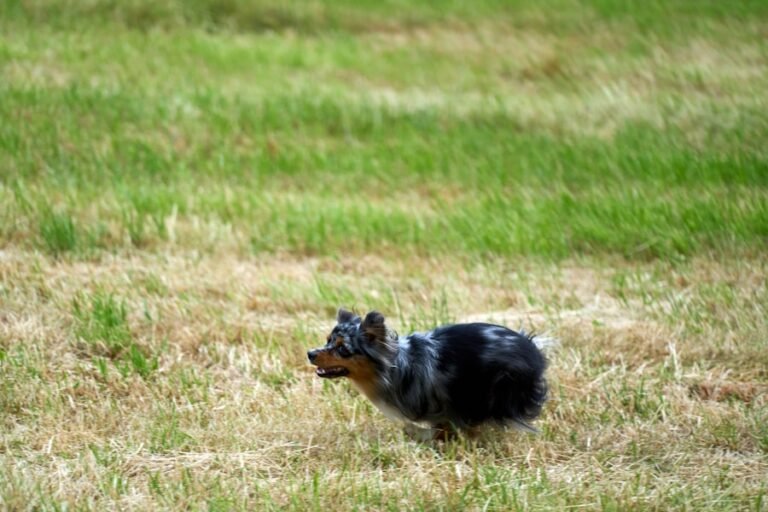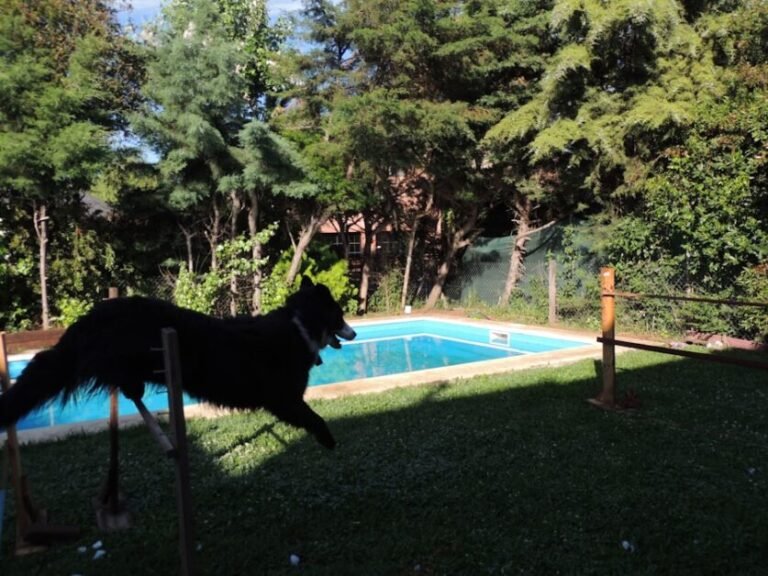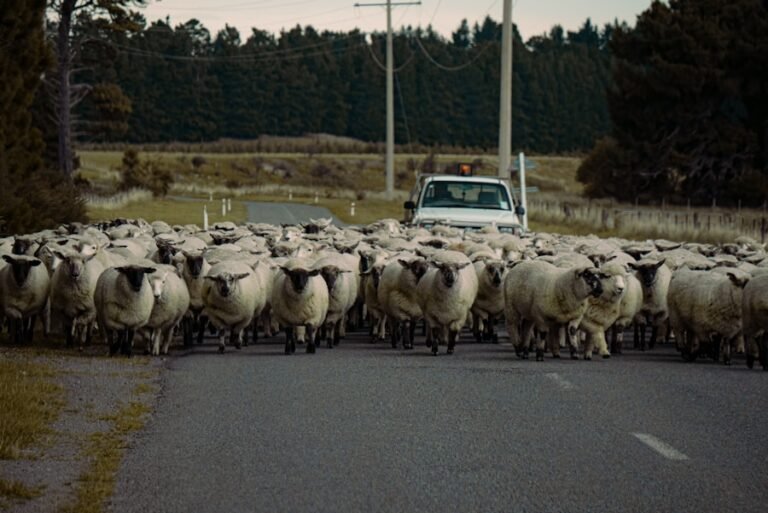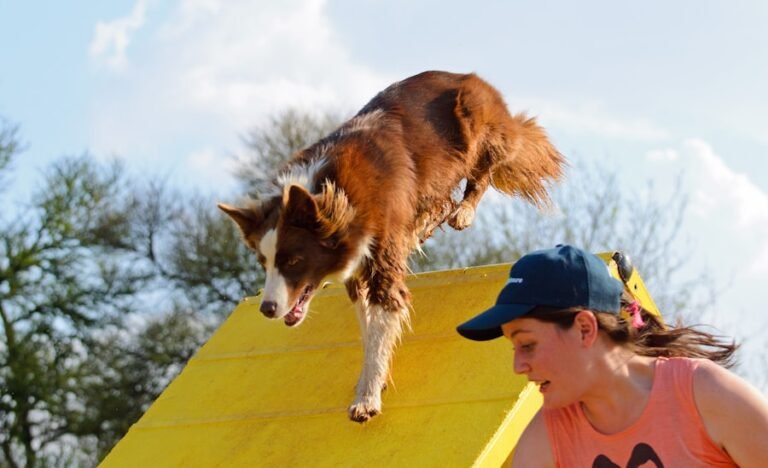Aging Gracefully: Tips for Caring for Your Senior Border Collie
As our beloved Border Collies age, it is important for us as pet owners to understand the aging process and provide them with the best possible care. Border Collies are known for their intelligence, agility, and energy, but as they get older, they may experience physical and cognitive changes that require special attention. By understanding the aging process in Border Collies, we can better meet their needs and ensure they live a happy and healthy life in their senior years.
Understanding the Aging Process in Border Collies
Border Collies have an average lifespan of 12 to 15 years, although some may live even longer with proper care. As they age, they may experience physical changes such as graying fur, decreased energy levels, and weight gain. They may also experience cognitive changes such as memory loss and confusion. It is important to note that each dog is unique and may age differently, so it is essential to pay attention to your individual Border Collie’s needs.
Signs of aging in Border Collies can vary but may include decreased mobility, difficulty getting up or climbing stairs, changes in appetite or thirst, increased sleeping, and changes in behavior or temperament. It is important to monitor these signs and consult with a veterinarian if you notice any significant changes in your dog’s health or behavior.
Common Health Issues in Senior Border Collies
As Border Collies age, they may be more prone to certain health issues. Arthritis and joint problems are common in senior dogs and can cause pain and mobility issues. Dental issues such as gum disease and tooth decay can also become more prevalent as dogs age. Cognitive dysfunction, similar to Alzheimer’s disease in humans, can affect older dogs and lead to memory loss and confusion. Cancer is another health concern that becomes more common in senior dogs.
Other common health issues in senior Border Collies include heart disease, kidney disease, liver disease, diabetes, and vision or hearing loss. Regular veterinary check-ups are essential for early detection and prevention of these health issues.
Importance of Regular Veterinary Check-Ups
Regular veterinary check-ups are crucial for senior Border Collies to ensure their health and well-being. It is recommended to have a check-up at least once a year, but more frequent visits may be necessary for older dogs. These check-ups allow the veterinarian to assess your dog’s overall health, detect any potential health issues early on, and provide appropriate treatment or management plans.
During a veterinary check-up, the veterinarian may perform various tests and screenings to assess your dog’s health. This may include blood work, urinalysis, X-rays, and other diagnostic tests. These tests can help identify any underlying health conditions and guide the veterinarian in developing a personalized care plan for your senior Border Collie.
Nutrition and Diet for Senior Border Collies
Proper nutrition is essential for senior Border Collies to maintain their health and vitality. As dogs age, their nutritional requirements may change, so it is important to choose the right food for your senior dog. Senior dog food formulas are specifically designed to meet the needs of aging dogs and may contain ingredients that support joint health, cognitive function, and overall well-being.
When choosing a food for your senior Border Collie, look for high-quality ingredients, including lean proteins, healthy fats, and a balance of carbohydrates. Avoid foods that contain excessive fillers or artificial additives. It is also important to monitor your dog’s weight and adjust their portion sizes accordingly to prevent obesity.
In addition to a balanced diet, senior dogs may benefit from supplements and vitamins that support their specific needs. Omega-3 fatty acids can help reduce inflammation and support joint health, while antioxidants can help protect against age-related cognitive decline. Consult with your veterinarian to determine which supplements are appropriate for your senior Border Collie.
Exercise and Activity for Aging Border Collies
While senior Border Collies may not have the same energy levels as when they were younger, regular exercise is still important for their physical and mental well-being. Exercise helps maintain muscle tone, joint flexibility, and cardiovascular health. It also provides mental stimulation and helps prevent boredom and behavioral issues.
It is important to adjust your senior Border Collie’s exercise routine to accommodate their age and physical condition. Shorter, more frequent walks may be more suitable than long hikes or intense play sessions. Swimming can be a low-impact exercise option that is gentle on the joints. Mental stimulation activities such as puzzle toys or obedience training can also provide exercise for the mind.
Always monitor your senior Border Collie during exercise and be mindful of any signs of fatigue or discomfort. If your dog has any health issues or mobility limitations, consult with your veterinarian for guidance on appropriate exercise routines.
Mental Stimulation and Enrichment for Senior Dogs
In addition to physical exercise, mental stimulation is important for senior Border Collies to keep their minds sharp and engaged. Mental enrichment activities can help prevent cognitive decline and provide a sense of purpose and fulfillment for older dogs.
There are many activities and games that can keep senior Border Collies mentally stimulated. Puzzle toys that require problem-solving skills can provide mental exercise and entertainment. Teaching new tricks or obedience commands can also challenge their cognitive abilities. Interactive play sessions with toys or games that require mental engagement can be beneficial as well.
Providing a variety of sensory experiences, such as different textures, scents, and sounds, can also stimulate your senior Border Collie’s mind. This can be achieved through walks in different environments, introducing new toys or objects, or engaging in scent-based activities such as nose work.
Mobility Aids for Senior Border Collies
As dogs age, they may experience mobility issues due to arthritis, joint problems, or muscle weakness. Mobility aids can help support and assist senior Border Collies in maintaining their independence and quality of life.
There are various types of mobility aids available for senior dogs, including ramps or stairs to help them navigate elevated surfaces, orthopedic beds or mattresses to provide comfort and support, and harnesses or slings to assist with walking or climbing stairs. Wheelchairs or carts can also be used for dogs with more severe mobility issues.
When choosing a mobility aid for your senior Border Collie, consider their specific needs and consult with your veterinarian or a professional in the field. Properly fitting and appropriate mobility aids can greatly improve your dog’s mobility and overall well-being.
Grooming and Hygiene for Aging Dogs
As dogs age, their grooming and hygiene needs may change. Older dogs may have a harder time grooming themselves due to decreased flexibility or mobility. It is important to help them maintain good hygiene to prevent skin infections, matting, or other issues.
Regular brushing is important for senior Border Collies to keep their coat clean and free from tangles or mats. This can also help stimulate blood circulation and distribute natural oils throughout the coat. Pay attention to any changes in your dog’s skin or coat, such as dryness, flakiness, or excessive shedding, as these may indicate underlying health issues.
Nail trimming is another important aspect of grooming for senior dogs. Overgrown nails can cause discomfort and affect their ability to walk properly. If you are not comfortable trimming your dog’s nails yourself, seek the assistance of a professional groomer or veterinarian.
Environmental Modifications for Senior Border Collies
Creating a safe and comfortable environment for senior Border Collies is essential to ensure their well-being. As dogs age, they may have difficulty navigating their surroundings or may be more prone to accidents or injuries. Making appropriate modifications to your home can help accommodate their changing needs.
Ensure that your home is free from hazards such as loose rugs or cords that can cause tripping. Provide comfortable bedding or orthopedic mattresses in areas where your senior Border Collie spends most of their time. Consider using baby gates or barriers to restrict access to areas that may be unsafe or difficult for them to navigate.
If your senior Border Collie has difficulty climbing stairs, consider installing ramps or providing alternative access to elevated areas. Provide non-slip surfaces on slippery floors to prevent falls. It is also important to maintain a consistent routine and keep their environment as stress-free as possible.
Managing Age-Related Behavior Changes
As dogs age, they may experience behavior changes due to physical discomfort, cognitive decline, or other factors. It is important to understand and address these changes to ensure your senior Border Collie’s well-being.
Common behavior changes in senior dogs may include increased anxiety or restlessness, decreased interest in activities or play, changes in sleep patterns, increased vocalization, and changes in appetite or elimination habits. These changes may be indicative of underlying health issues or cognitive decline.
To manage age-related behavior changes, it is important to provide a consistent routine and environment for your senior Border Collie. Ensure they have a comfortable and quiet space where they can rest undisturbed. Provide mental stimulation and enrichment activities to keep their minds engaged. If necessary, consult with a veterinarian or professional dog trainer for guidance on behavior management techniques or medications that may help alleviate anxiety or other behavior issues.
Quality of Life Considerations for Senior Border Collies
The quality of life for senior Border Collies should be a top priority for pet owners. Factors that contribute to a good quality of life include physical health, mental well-being, social interaction, and overall happiness.
Assessing your senior Border Collie’s quality of life involves monitoring their physical health and mobility, observing their behavior and temperament, and considering their overall happiness and enjoyment of life. It is important to consult with your veterinarian to determine the best course of action if your dog’s quality of life is declining.
Providing a comfortable and safe environment, regular veterinary care, proper nutrition, mental stimulation, and social interaction are all important aspects of ensuring a good quality of life for your senior Border Collie. It is also important to be mindful of their individual needs and make adjustments as necessary to accommodate their changing abilities and preferences.
Understanding the aging process in Border Collies is essential for providing them with the best possible care in their senior years. By recognizing the physical and cognitive changes that occur with age, addressing common health issues, and implementing appropriate modifications to their environment and routine, we can ensure that our senior Border Collies live a happy and fulfilling life. Regular veterinary check-ups, proper nutrition, exercise, mental stimulation, grooming, and hygiene are all important aspects of senior dog care. By prioritizing their well-being and quality of life, we can continue to enjoy the companionship and love of our senior Border Collies for many years to come.









